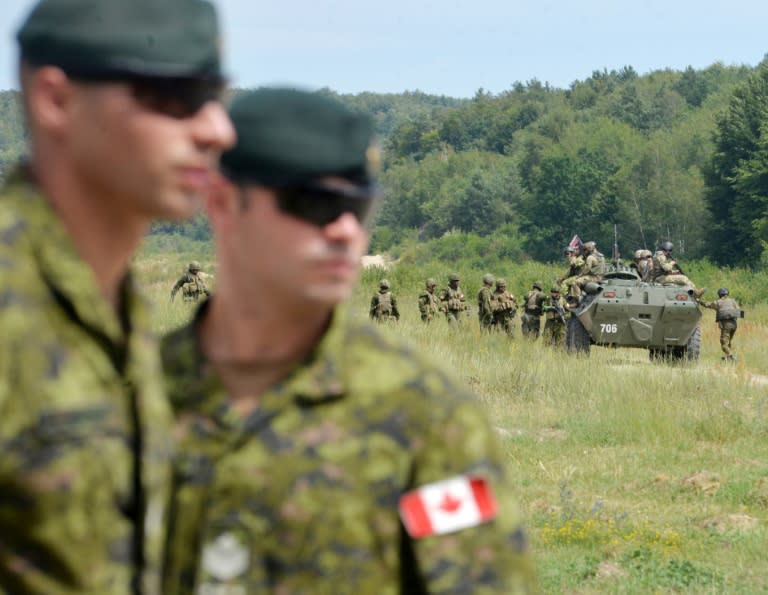Canada, hoping to boost profile, pledges peacekeepers to UN
Canadian Prime Minister Justin Trudeau's government on Friday committed 600 troops and Can$450 million (US$350 million) over three years to United Nations peacekeeping operations around the world. Touted by the Liberal administration as a recommitment to multilateralism, the move also positions Canada to make a stronger bid for a rotating seat on the UN Security Council. Ottawa's "commitment to increase Canadian participation in UN peace operations and supporting its mediation efforts, preventing conflicts, and engaging in post-conflict reconstruction" will give Canada "a stronger voice on the world stage," Foreign Affairs Minister Stephane Dion told a news conference. The announcement comes ahead of a major peacekeeping conference in London in two weeks. In order to attend, countries must make a tangible peacekeeping pledge. A decision, however, has not yet been made about where to deploy the military personnel, said Defense Minister Harjit Sajjan. Trudeau is likely to identify a specific mission or missions when he goes to the UN General Assembly next month. Whereas his Conservative predecessor Stephen Harper sought distance from the UN, Trudeau has signaled that Canada now intends to play an increased role beyond its borders through the global body. Speaking separately Friday with reporters, he said the 600 troops and nearly half a billion dollar contribution was only the "first part" of Canada's re-engagement with the United Nations. "It's recognition of the fact that Canada has a duty to be engaged and to be a positive player in the world in the coming years," Trudeau said. - Big rise in peacekeepers - According to government figures, 31 Canadian soldiers were deployed this year on UN peacekeeping missions in Haiti, the Jerusalem region, South Sudan, Cyprus, the Democratic Republic of Congo and South Korea, down from a reported peak of 3,000 in 1993. "This will have a big impact," UN spokesman Stephane Dujarric said about the new deployment. "We have no doubt the Canadian armed forces can help us bolster our capabilities across the globe." Trudeau also announced in February, when he hosted UN Secretary-General Ban Ki-moon in Ottawa, that Canada would seek a seat on the Security Council, hoping to erase the humiliation of its first failed bid in 2010 under the previous Tory administration. In a statement Friday, the government said the Canadian deployment would tackle "multifaceted conflicts, requiring political, security, development and humanitarian responses brought together under the broad umbrella of 'peace operations.'" Funding would go to protect displaced persons, refugees, women and children, as well as to support "early warning, conflict prevention, dialogue, mediation and peace-building, and the empowerment of women in decision-making for peace and security." The 600 personnel will include ground troops and commanders, with engineering and medical expertise and military and police training. Military transport aircraft will also be deployed. Trudeau has said French speakers in the Canadian military are in demand in hotspots in some former French or Belgian colonies, including Haiti and the Central African Republic. Sajjan recently returned from a five-country scouting mission in Africa, providing a hint of possible countries in which Canada may deploy troops. International Development Minister Marie-Claude Bibeau also visited Colombia earlier this year, opening the door to Canada playing a role in an upcoming ceasefire observer mission following a truce between the government and rebel forces.



